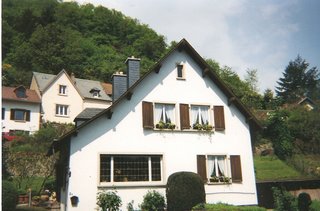Here is a numismatist whose fine site focuses on the stories of money in many places, and explains the history of Luxembourg well - go to http://www.roth37.it/COINS/Lux/index.
Most of the site is in Italian, but click on "Abstract" when you have the opportunity and English will appear. http://www.roth37.it/COINS/Lux/abstract.html: the site person's objective --
"This work wants to show how Coinage can explain the History of a Country, showing how and when it was independent and when, on the contrary, he was subjected."
Summary from the site's abstract, for those who like to see the mixes that make modern cosmopolitan areas:
Luxembourg was occupied (Gauls, Germans, Caesar), became an Earldom, was upgraded to a Grand Duchy after the Earl became an Emperor and the Earldom passed to his heir, and the heir upgraded (Dukes being higher than Earls, Duke of Earl notwithstanding). "Engagistes" took over - French for people charged as governors for the sovereign (as when the sovereign is a minor?) and this often followed who owed whom which debts; then sovereigns gave-sold-gave-sold the country. So far we have Bohemians and Burgundians mostly. Then enter wars, ravaging, and a new player, Spain, who also held the Netherlands I think. Then it was passed by Spain to Austria, then Austria to France. Then to William of Orange, as part of the Netherlands. Then independence. Not for long. Occupied by Germany in WWI. After, Belgium wanted to annex Lux, but instead Lux established economic and not political union with Belgium. German Nazi occupation WWII. Freed (General Patton, buried there at Hamm Military Cemetary) and continuing independence (as a Grand Duchy??).
"Sometimes coins could explain it better than historiography, which is always written by the winners..." www.roth37.it/COINS/Lux/abstract.html
Most of the site is in Italian, but click on "Abstract" when you have the opportunity and English will appear. http://www.roth37.it/COINS/Lux/abstract.html: the site person's objective --
"This work wants to show how Coinage can explain the History of a Country, showing how and when it was independent and when, on the contrary, he was subjected."
Summary from the site's abstract, for those who like to see the mixes that make modern cosmopolitan areas:
Luxembourg was occupied (Gauls, Germans, Caesar), became an Earldom, was upgraded to a Grand Duchy after the Earl became an Emperor and the Earldom passed to his heir, and the heir upgraded (Dukes being higher than Earls, Duke of Earl notwithstanding). "Engagistes" took over - French for people charged as governors for the sovereign (as when the sovereign is a minor?) and this often followed who owed whom which debts; then sovereigns gave-sold-gave-sold the country. So far we have Bohemians and Burgundians mostly. Then enter wars, ravaging, and a new player, Spain, who also held the Netherlands I think. Then it was passed by Spain to Austria, then Austria to France. Then to William of Orange, as part of the Netherlands. Then independence. Not for long. Occupied by Germany in WWI. After, Belgium wanted to annex Lux, but instead Lux established economic and not political union with Belgium. German Nazi occupation WWII. Freed (General Patton, buried there at Hamm Military Cemetary) and continuing independence (as a Grand Duchy??).
"Sometimes coins could explain it better than historiography, which is always written by the winners..." www.roth37.it/COINS/Lux/abstract.html
 Vianden Castle, Luxembourg
Vianden Castle, Luxembourg Home, Luxembourg
Home, Luxembourg